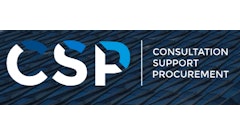
It’s often stated, “The biggest challenge in the family business is the family not the business.”
I chuckled naively the first time I heard that phrase. At the time, I was completing a decade of leadership experiences at FedEx, a corporate giant of 300,000 employees. I couldn’t relate to any company where one family member might report to another. Silly me. I thought nepotism was a bad word.
I soon learned the laugh was on me. According to the U.S. Bureau of the Census, about 90% of American businesses are family-owned or controlled. And having built our family business and consulted with many others over two decades, I’ve come to understand the complexity of the family politics, dynamics and ecstasy that comes along with the wild ride.
Family businesses face turbulent headwinds. Aside from the cashflow disruptions, capitalization challenges and the barrage of governmental regulations, there is much internal noise that can distract from the primary objective… i.e. to make a profit. Setting those looming issues aside for a moment, I’ll cut right to the chase. I know you can handle it.
In many family businesses, non-family employees are worn out with the double standard they feel gets applied daily to their work environment. They see parking spots for family members, expense receipts from family outings and temper tantrums they know would never be tolerated from them. They perceive a company culture that rewards non-stellar performers for having the right last name, the most favored family member or the longest history with the company.
Non-family employees see their hard work offset by the reckless actions of the family black sheep. They often feel they have no place where they can air their gripes. These employees know that they are unlikely to acquire substantial equity in the company and so they behave like employees. And we wonder why they don’t take more ownership in the success of their company.
These employees are often right, but have no concept of what it means to struggle to make payroll or mortgage a home to finance a company. The truth is somewhere between the employees’ assumptions and the owner’s understanding of the drama unfolding in his business.
As consultants, we focus predominantly on the business itself. We see the potential to build a productive culture and legacy around the owner’s priorities and value system. We see the necessity to nail down processes and procedures that are the lifeblood of a growing company. And we see the imperative to establish an objective measurement system for monitoring, rewarding and promoting the most productive, team oriented employees.
Daily we see family enterprises that seem almost poised for acceleration. Then, predictable problems occur and they struggle to survive. Ironically, these companies thrive once we show them how to apply three proven business techniques.
These concepts are not mysterious. In fact, they were developed by companies like FedEx and Xerox in their early days. And they work even more effectively decades later because they stabilize the foundational layer of the company and establish key ground rules for scalability.
Most importantly, they detour around the employee misperceptions mentioned above because they create a fair playing field, a reasonable set of expectations and process predictability.
Here’s a threefold strategy for the success of your family business:
- Solidify your corporate culture so that it doesn’t shift as you grow your organization.
- Ensure key processes are formalized and monitored for consistent execution.
- Build team dynamics that are increasingly collaborative and cohesive.
Solidify your corporate culture so that it doesn’t shift as you grow your company
Plan the culture of your organization in advance so that the design is intentional.
Every employee brings their unique set of experiences and values into your company. These preferences and attitudes may work great elsewhere but can be toxic when applied in your family business. Regardless of the size of your team, we recommend that you specify the six to eight principles that will reign supreme in your company. Apply these principles to make decisions, hire, promote and fire. This agreed upon approach is particularly helpful in a family business where value systems may differ between key family members. A published set of principles forces conversation to occur that helps clarify decisions before problems occur.
Ensure key processes are formalized and monitored for consistent execution
Take time to identify those processes that are critical and formalize them in writing. Hold all family members and employees accountable to following these processes.
We often work with technical teams and find the more technically oriented the business the greater the propensity for professionals to work around procedures. This can be especially deadly when an organization has a variety of other departments that rely upon those process steps for their notification or supporting documentation. While formalizing key processes is not a 100% guarantee the steps will be followed, it does provide a framework that is crucial for training, remediation and disciplining employees who skip steps.
Build team dynamics that are increasingly collaborative and cohesive
Coach your team to rely upon one another and communicate effectively. This can provide substantial competitive advantage and dramatically reduce your cost of operations.
We teach teams how to leverage their collective talents by communicating in a transparent and timely fashion. Our slogan is “communicate early and communicate often.” Emphasize teamwork over individual contribution and you will experience a surge in both. And this continued focus on collaboration builds camaraderie between the team and family members.
The bottom line is this. When you solidify a common culture, execute positive processes and build collaborative communication you instill trust. And trust is the most valuable currency in a family business.
Start today! Solidify your corporate culture so that it doesn’t shift as you grow your organization. Ensure key processes are formalized and monitored for consistent execution. And build team dynamics that are increasingly collaborative and cohesive.
Your family and your business will prosper!
Keith Martino, author of Expect Leadership, has a passion for helping family business owners achieve stellar results. Martino is head of CMI, a global consultancy founded in 1999 that customizes leadership initiatives in the construction, renovation and remodeling industries. In addition, Martino has helped strengthen leadership development programs for major manufacturers to the construction industry, with articles published in such magazines as Builder and Remodeling. Prior to founding Keith Martino.com and CMI Assessments, Martino has successfully led sales and marketing organizations for multinational companies. His group was twice recognized as the top global accounts team in the world for FedEx.



















